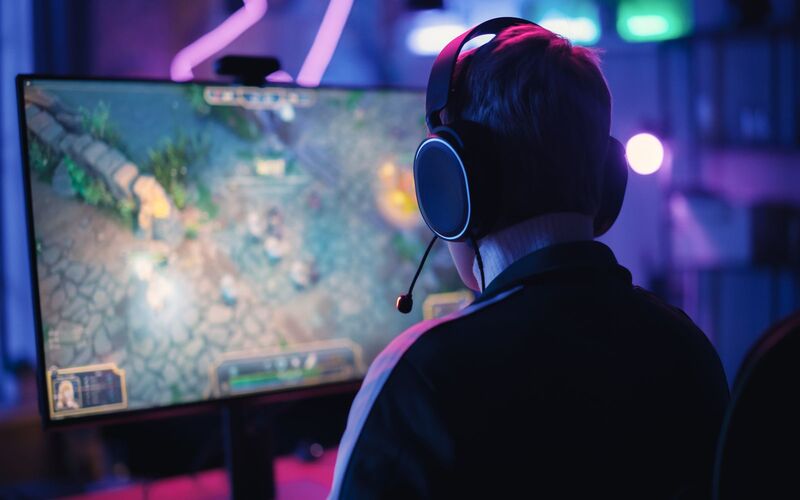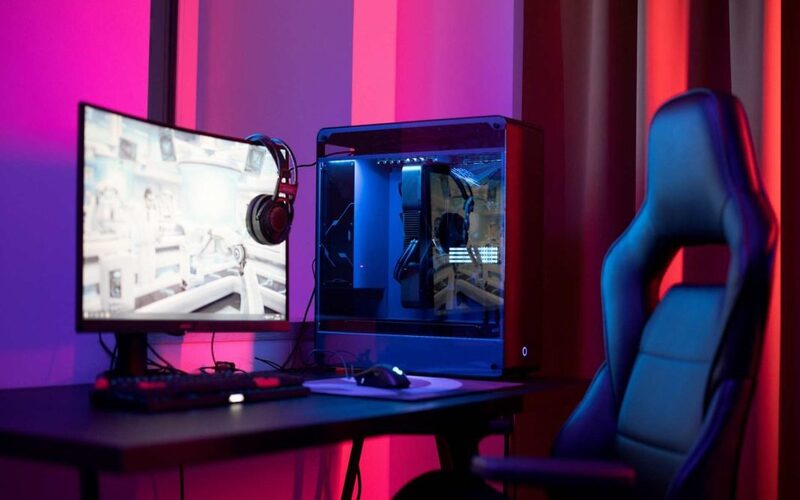
Steps and Challenges in the Game Translation Process into Indonesian
The process of translating games into Indonesian is a comprehensive effort that ensures video games are accessible, enjoyable, and culturally relevant for the Indonesian market. This process, known as game translation, involves several steps and faces various challenges that need to be overcome to achieve a satisfying outcome.
Games, to whatever degree, are a representation of the creator's imagination. So unlike novels, for example (except perhaps science fiction novels), translating game transcripts has its own level of difficulty, Whether it's a PC game or a game for mobile devices. An example is translating the names of items and skills, which is almost an inseparable "routine" in a game translation project. For video game fans, item and skill names are certainly more fun if they remain in the original language. Apart from being commonly heard, they also sound "magical.".
Understanding the Target Audience
Before starting the game translation process, it is very important to understand the target audience. The Indonesian gaming market consists of a diverse demographic with different preferences and cultural nuances. Conducting thorough market research to identify the preferences, gaming habits, and cultural context of the target audience is the first step. This understanding helps in creating translation strategies that suit Indonesian players.
Read More: UGC in the Gaming Industry and Its Impact on Indonesian Game Localization
Making a Translation Plan
A well-structured translation plan is essential to efficiently managing the game translation process. The plan should include the scope of work, schedule, budget, and required resources. Additionally, this plan should include a detailed project schedule, setting milestones and deadlines for each phase of the translation process. Defining quality standards and establishing a review process also ensure that translated content meets desired standards.
Establish a Skilled Translation Team
The success of the game translation process is highly dependent on the expertise of the translation team. Forming a skilled team consisting of translators, editors, and proofreaders who are native Indonesian speakers and have a deep understanding of the source and target languages is very important. Additionally, the team must have experience in game translation and localization, as this requires specialized knowledge of terminology, context, and cultural nuances in games.
Game Content Extraction and Preparation
The next step is to extract the game content that needs to be translated. It includes all textual elements such as dialogue, menus, instructions, and in-game messages. It is important to ensure that the extracted content is systematically organized and categorized for translation efficiency. Preparing a comprehensive glossary of terms, including gaming jargon and specific terminology used in games, helps in maintaining consistency throughout the translation process.
Translating Game Content
Translating actual game content is a meticulous process that requires attention to detail and cultural sensitivity. The translator must accurately convey the meaning of the original text while adapting it to suit the cultural context of the Indonesian players. This involves translating dialogue, instructions, and narration in a way that feels natural and engaging. Additionally, ensuring that translated text conforms to user interface constraints, such as character limits and layout, is critical to maintaining a smooth gaming experience.
Localize Visual and Audio Elements
Game localization involves more than just text translation; it also includes visual and audio elements. Adapting visual content, such as images, icons, and symbols, to suit the cultural preferences of Indonesian players improves the overall gaming experience. Likewise, localizing audio elements, including voiceovers and sound effects, ensures that the game resonates with the target audience. Hiring voice actors who are native Indonesian speakers and have experience in dubbing for games is essential to provide authentic, high-quality audio localization.
Implementation and Testing of Translated Content
Once the translation and localization of all game elements are complete, the next step is to implement the translated content into the game. This involves the integration of translated text, visuals, and audio into the game's code and user interface. Thorough testing is essential to identify and fix any problems that may arise during the implementation process. Quality assurance testing, including linguistic and functional testing, ensures that translated games run smoothly and provide an optimal user experience.
Addressing Cultural Sensitivity
One of the main challenges in the game translation process is overcoming cultural sensitivity. Indonesia is a diverse country with a rich cultural heritage, and some content may be considered inappropriate or offensive. Translators and localization experts must carefully navigate these sensitivities to ensure that game content is culturally appropriate. This may involve modifying or removing certain elements, such as symbols, references, or themes, that may not conform to Indonesian cultural norms.
Managing Technical Limitations
Game translation also involves managing technical limitations, such as character limits, text expansion, and compatibility with various platforms. Ensuring that the translated text fits the allocated space without sacrificing readability or meaning is critical. Additionally, translated content must be compatible with multiple gaming platforms, including mobile, PC, and consoles. Overcoming these technical limitations requires close collaboration between translators, developers, and quality assurance teams.
Maintain Consistency and Quality
Maintaining consistency and quality throughout the game translation process is critical. Establishing review and feedback mechanisms helps in identifying and correcting inconsistencies or errors. Regular communication and collaboration between the translation team, developers, and quality assurance testers ensures that the translated content meets the desired quality standards. Additionally, conducting multiple rounds of review and revision helps refine the translated content to achieve accuracy and coherence.
Overcoming Time and Budget Limitations
Time and budget constraints are common challenges in the game translation process. Meeting tight deadlines while maintaining high translation quality requires efficient project management and resource allocation. Good planning, setting a realistic schedule, and prioritizing tasks based on their importance help overcome these limitations. Additionally, allocating sufficient budget for translation, localization, and quality assurance ensures that the project is completed successfully without compromising on quality.
Legal and Regulatory Compliance
Complying with legal and regulatory requirements is another important aspect of game translation process. Indonesia has special regulations governing video game content and distribution. Ensuring that translated games comply with these regulations is essential to avoid legal complications and delays in game launch. This may involve modifying certain content to comply with local laws and obtaining the necessary approvals from regulatory authorities.
Evaluating and Integrating Player Feedback

Post-launch evaluation and integrating player feedback are critical to the continuous improvement of the translated game. Monitoring player reviews, feedback, and ratings will help us identify areas that may require further improvement. Integrating player feedback into future updates and patches shows a commitment to providing an exceptional gaming experience for Indonesian players.
In conclusion, the process of translating games into Indonesian is a multifaceted effort that involves several steps and faces various challenges. Understanding the target audience, creating a detailed translation plan, assembling a skilled translation team, and overcoming cultural and technical limitations are essential to achieving successful results. Maintaining consistency, quality, and compliance with legal requirements also contributes to the success of the translation process. By effectively navigating these steps and challenges, game developers and publishers can create engaging and culturally relevant gaming experiences for the Indonesian market.
If you are looking for game localization services, Digital Trans Asia is the most appropriate choice. Here, we will provide services according to your needs, especially for game localization. We will help you expand the game market that you are developing globally and internationally. Please consult with us to learn more.